|
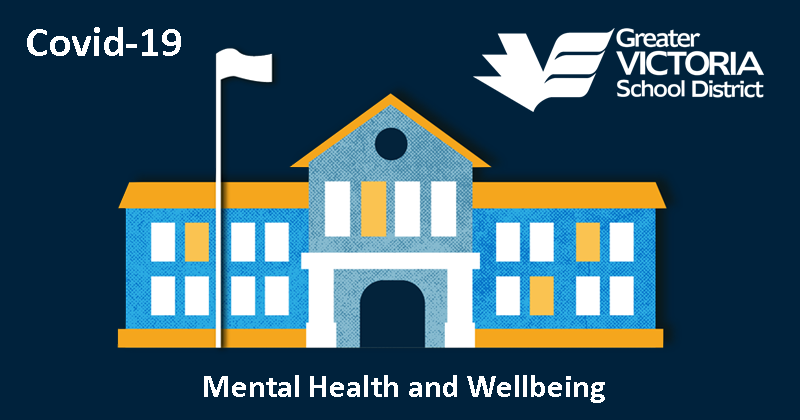
| April 20, 2020
COVID - 19
Secondary Snapshot
Resolving Conflict

|
| |
|
|
|
 | The COVID-19 pandemic and the public health response to this crisis requires us to spend more time together in our homes and have disrupted our routines. Many are also experiencing financial uncertainty, disruptions in mental health services, and other stressors. In moments like this, families may experience greater levels of stress, anxiety, and social isolation, which, in turn, can increase conflicts between family members. They also provide us with opportunities to connect with each other and practice self-care.
(Rhonda C. Boyd, Ph.D., Children’s Hospital of Philadelphia)
|
|
|
|
|
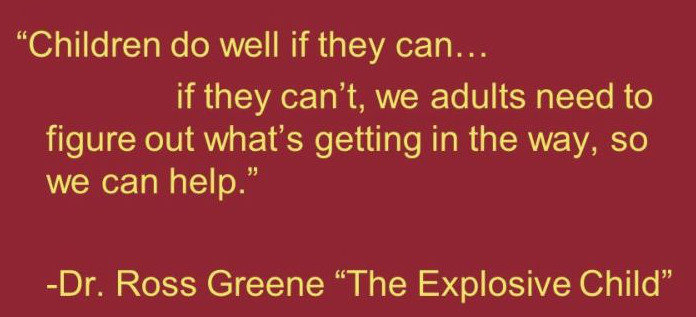
| Dr Ross Greene's Collaborative & Proactive Solutions: Dr. Ross Greene is the originator of the research-based approach to understanding and helping behaviorally challenging kids.
|
|
|
This approach is called Collaborative & Proactive Solutions (CPS) and is described in his books The Explosive Child and Lost at School. The CPS model has been implemented in countless families, schools, inpatient psychiatry units, therapeutic group homes, and residential and juvenile detention facilities.
|
|
|
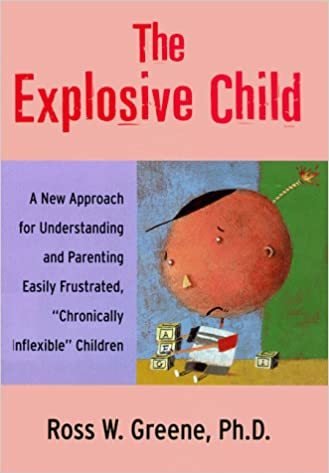 | The approach sets forth two major principles. First, challenging behavior in kids is best understood as the result of lagging emotional skills (in flexibility/ adaptability, frustration tolerance, and problem solving) rather than the result of parenting styles.
And second, the best way to reduce challenging behaviours is by working together with the youth to solve the problems that set the behaviours in motion in the first place.
|
|
|
|

| Dr Ross Greene Video
"Kids Do Well if they Can" This is the most important theme of Collaborative Problem Solving: the belief that if kids could do well they would do well.
Challenging kids are challenging because
they’re lacking the developmental skills not to be challenging.
|
| |
|
|

|
Dr Ross Greene Video
"Being Responsive" The definition of good parenting, good teaching, and good treatment is being responsive to the hand you've been dealt. Notice, the definition isn't "treating every kid exactly the same".
|
| |
|
|
|
|
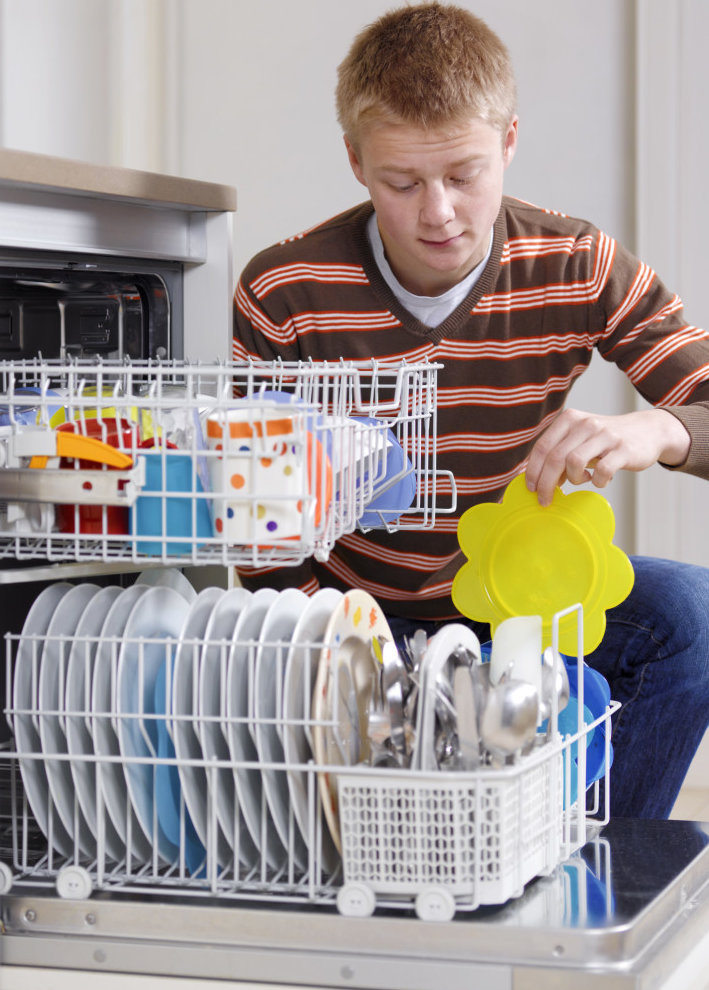
| Practice Conflict Resolution: This is a unique time, and families have been thrust together without much warning while increased financial, physical and emotional stressors can make it difficult to cope. Some psychologists suggest "practicing" conflict resolution with small issues, instead of waiting for them to pile up.
For example, discuss everyone needing to help keep common areas clean the first time it becomes an issue, instead of waiting 2 weeks, with resentment growing.
|
| |
|
Maintain Humour and Kindness: Stress makes people irritable. Enclosed spaces, boredom and a lack of routine can make it even harder to resolve conflicts.
Try to find humour, and look at the situation from the other person's perspective as you attempt to find a resolution. It is important to find small ways to be kind to each other as we negotiate new ways of living together. This has to be modelled first, before we can expect it of others.
|
|
|
|
Be Direct: Psychologist, Dr Robinson-Brown, suggests direct conversation between two people with a disagreement. He observes that often, parents are expected to be the "referee", when it is often more helpful to have the two individuals who are in conflict speak directly to each other, with the ground rules of discussing the behaviour not the person, and keeping it to present issues, as opposed to past concerns.
|
| |
|
Set Clear Expectations: Dr Hing, a BC Psychologist, observes that the pandemic creates unusual opportunities for conflict, particularly around shared space and possessions. He suggests having family members agree to a plan before it becomes a conflict, so that expectations are clear. He goes further, and suggests a weekly "check-in" so that all members of the family have an opportunity to voice concerns without waiting for a conflict to arise
|
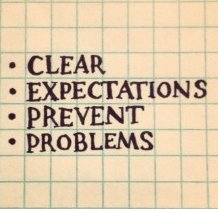
|
|
|
|
|
|
|
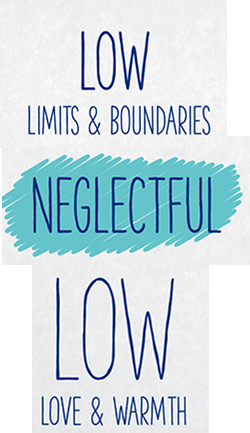 | Neglectful Parenting Style: Some people are low on love and warmth towards their children, and they‘re also low on limits and boundaries. In other words, they don‘t show much interest in what their children do, and they don‘t show much evidence that they really care about their children. These parents are known as ’neglectful‘.
Children raised in neglectful environments typically struggle because basic relationship needs are unmet. They do poorly in school and with friends. And they typically lack self-regulation, meaning they make poor choices around alcohol and other drugs, treating others well, and keeping the law
|
|
|
|
|
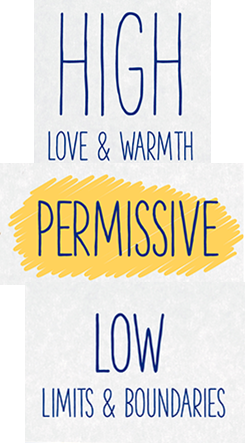 |
Permissive Parenting Style:
There are some parents who are ultra-loving and super-warm, but they‘re so concerned with kindness they regularly choose to forego limits and boundaries. The kids get away with anything and everything. These parents are known as ’permissive‘.
Some research shows that indulged children may behave in entitled, spoiled ways. And because of their heavy reliance on others to meet their needs, they may struggle with resilience. They can also be resistant to limits because they are not used to having them imposed.
|
|
|
|
|
|
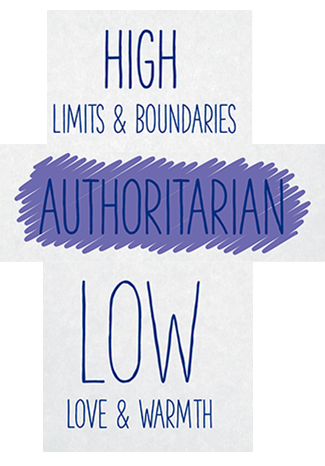 |
Authoritarian Parenting Style: Authoritarian parents are strict and are often lacking in warmth, especially when enforcing limits. Their way of being towards their children can be “I‘ll say it once. I expect you to do it. And if you don‘t, I‘ll come down hard on you".
Many parents swing between permissive and authoritarian. They‘re kind and permissive, and they let the children get away more and more until they can‘t take it anymore. They blow up and things get totally out of control.
Kids who grow up with hardline parents will often be rebellious – so long as no one is looking. And families can be fractured because of the cold, harsh way their parents respond.
|
| |
|
|
|
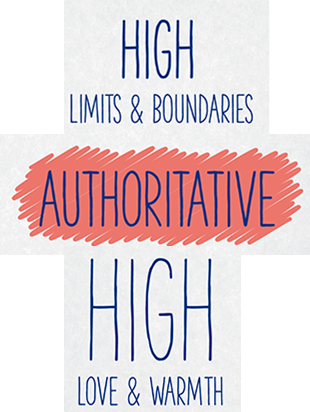 |
Authoratative Parenting Style: Diana Baumrind – the researcher credited with developing the parenting styles model – suggested that authoritative parents ought to rely heavily on their power to coerce their children to comply with limits. And that they should just do it warmly, where possible. The idea here is that we clearly show we are the parent, and we have firm, strict rules. We just need to stay warm and “kind” while we‘re putting our kids in time out or removing privileges from them for doing something we don‘t like.
In this model, adults have all the power, and youth often fail to attach meaning to the issue or consequence; they just need to put in their time.
|
|
|
|
|
Autonomy Supportive Parenting: So if none of these parenting styles are ideal, what‘s the alternative? It has a clunky name – autonomy supportive parenting – but it can work. Powerfully. Parents don‘t have to rule by fear and power, as this kind of parenting moves the adults away from punishments and rewards. As author, Alfie Kohn, describes, it takes away from “doing things to” our children, and focuses us on “working with” our children. In many ways, it mirrors Dr Ross Greene's work described earlier.
|
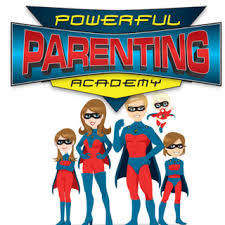
|
|
|
It works like this:
Give youth a clear reason for behaviour requests
Recognize the feelings and perspective of the child
Offer choices and encourage initiative and problem solving
Minimize the use of controlling techniques | This parenting style NOT a soft way to parent. It requires openness, flexibility, and a strong positive relationship. It demands that adults know what they are asking of their children and why. And it means all involved have the humility to recognize we don‘t know everything.
|
|
|
 | The third principle, problem solving, is the powerful part of the process. It is where the adult invites the youth to come up with limits and then guide them accordingly. This is how teens internalize and “buy-into” the rules – because they‘re making them up with the care givers, rather than having rules as demands.
|
|
|
Studies show that when we get this right, we build our relationship and we strengthen our children‘s ability to make great decisions. Our discipline problems are reduced. By letting go of power and by developing our children‘s ability to make good decisions for themselves, we make better kids, and happier families.
|
|
|
|
|
|
Click the button below for a comprehensive list of Community Services and their availability during the pandemic.

|
| |
|
|
|
|
|
|
Learning Resources for Students with Complex Needs:
|
|
|
|
|
|
|
|
|
|
|
|
|